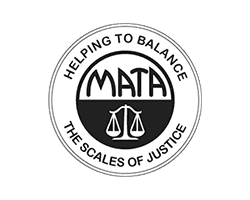Traumatic brain injuries (TBIs) commonly occur because the head is suddenly forced to start and stop. This process is typically called acceleration/deceleration. As the brain is forced back-and-forth inside the skull, it is pulled out of shape. This process causes injury. This type of head movement is often the result of a rear end motor vehicle collision, slip and fall or some other traumatic event.

According to the Mayfield Brain and Spine, TBI is the leading cause of death and disability among people ages 1 to 44. TBI’s can range from mild concussions that fully heal to severe permanent brain damage. The consequence of a TBI can affect all aspects of a person’s life, including physical and mental abilities as well as emotional and personality changes. There are a number of symptoms that often accompany traumatic brain injuries such as memory loss, confusion, fatigue, headache, nausea, depression, irritability and dizziness.
According to Shelly Duell, a writer for TryMunity.com (a social network created by survivors of traumatic injuries) there are a number of misconceptions about TBI’s. Some of those are:
1. Direct head impact is necessary for TBI to occur. Popular culture has developed the idea that brain injury requires the head to be struck by a person or an object, but this isn’t true. Fast acceleration and deceleration of the head, such as in whiplash, can cause TBI when the brain impacts the inside of the skull.
2.TBI only occurs when someone is knocked out. Some patients who suffer head injury lose consciousness for seconds or minutes, but others are only dazed for longer periods, especially with mild TBI. However, a post-concussion syndrome that includes problems with cognition, emotion, and perception may occur.
3.Brain injury can always be detected with CT scans, MRIs and EEGs. Modern imaging technology doesn’t always detect TBI, especially in mild cases. Patients who have documented cognitive problems from TBI may show no abnormalities on these scans. For these reasons, visual proof can mean little in TBI.

If you have been involved in any type of personal injury that leaves you with brain injury symptoms, you need to be vigilant in getting treatment. These types of injuries are often overlooked in favor of more evident forms of trauma.
Contact our office today to get started with a free initial consultation.












